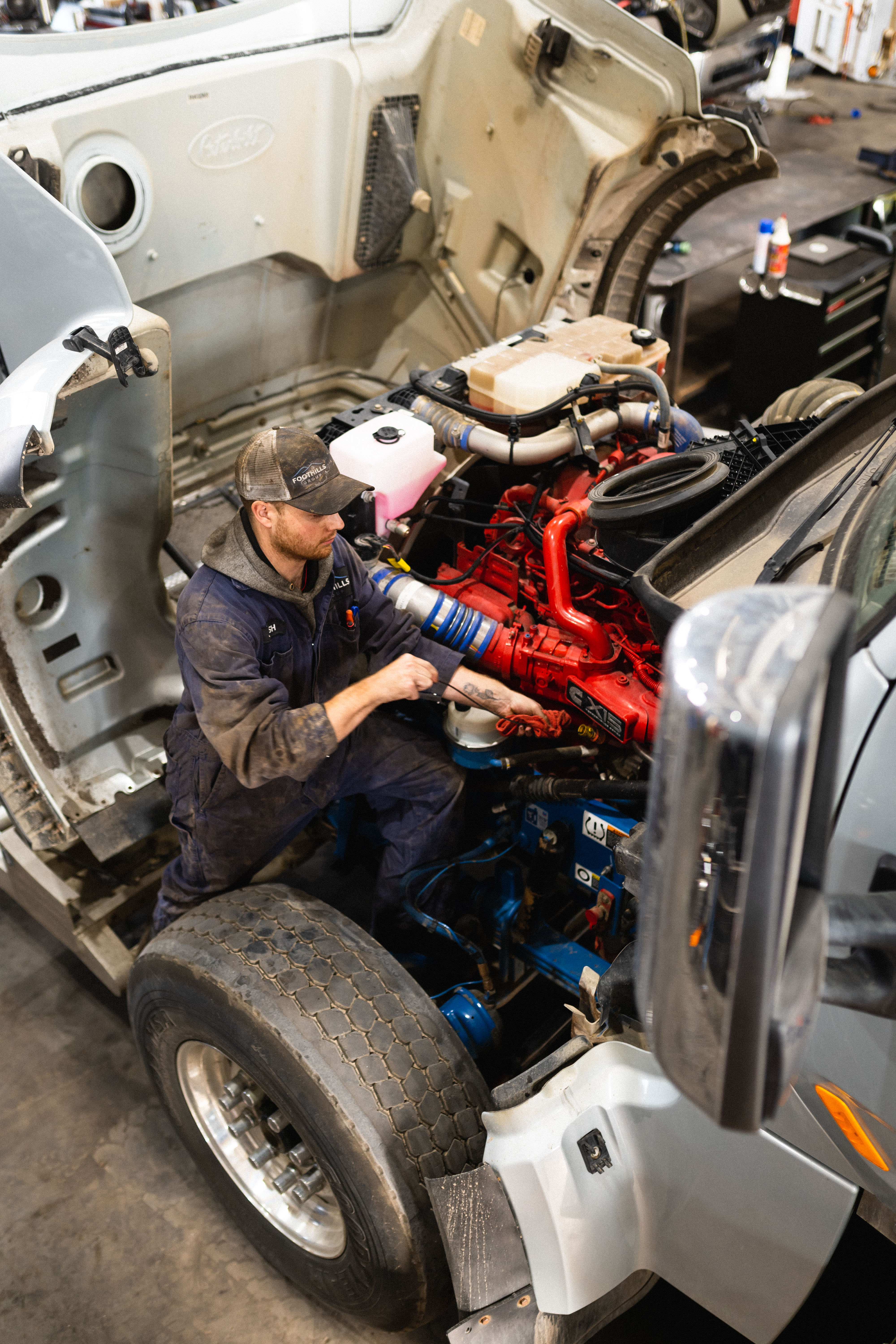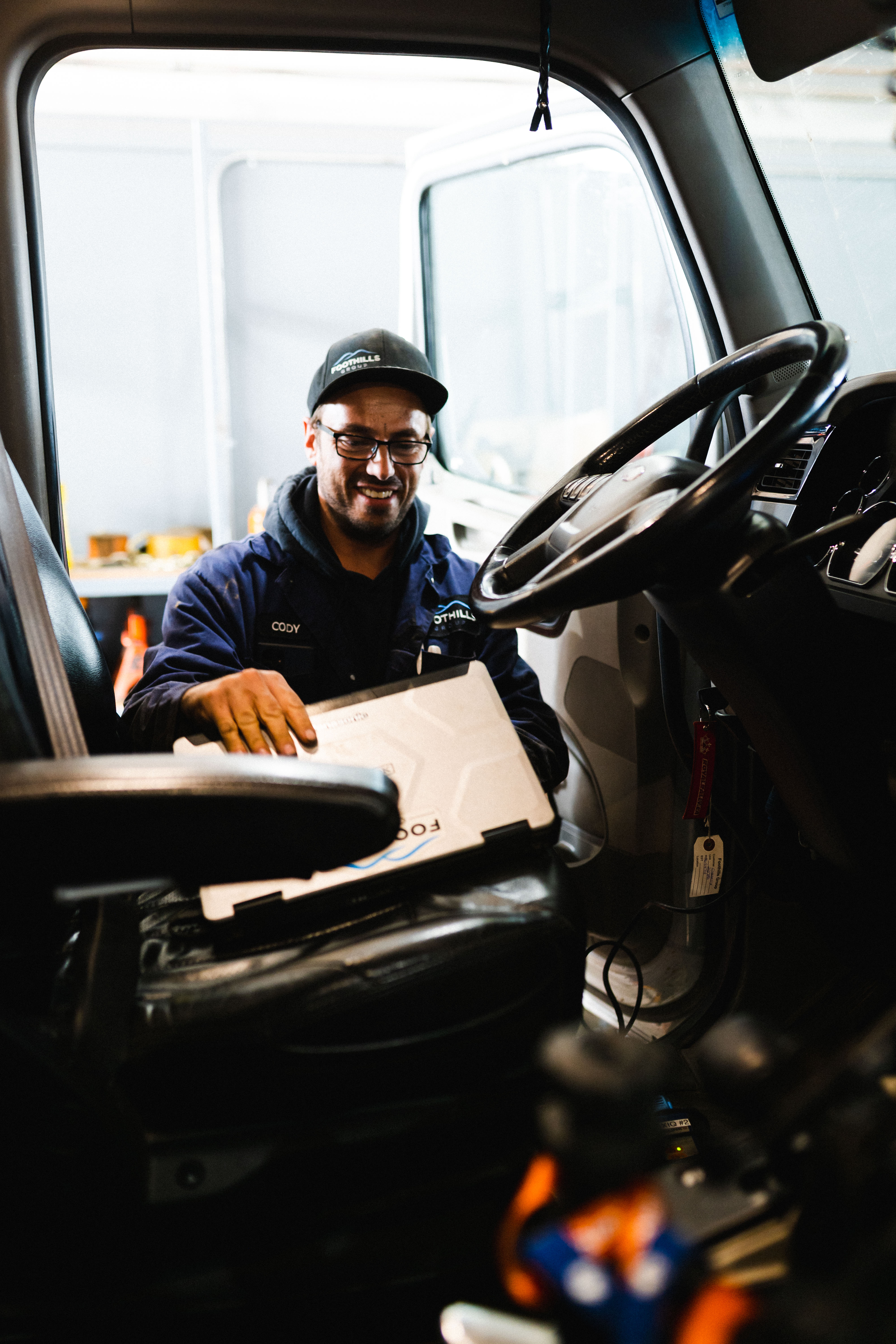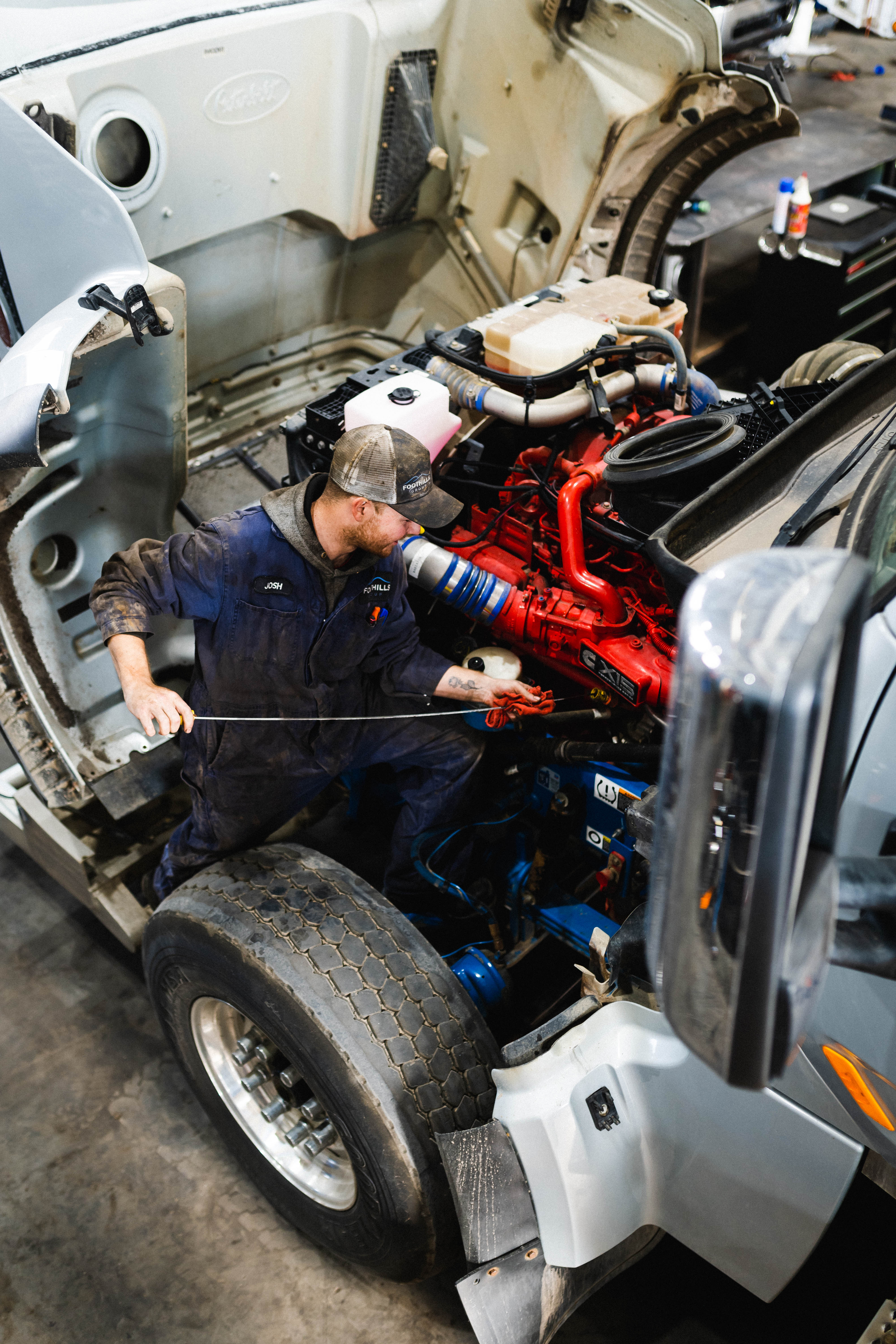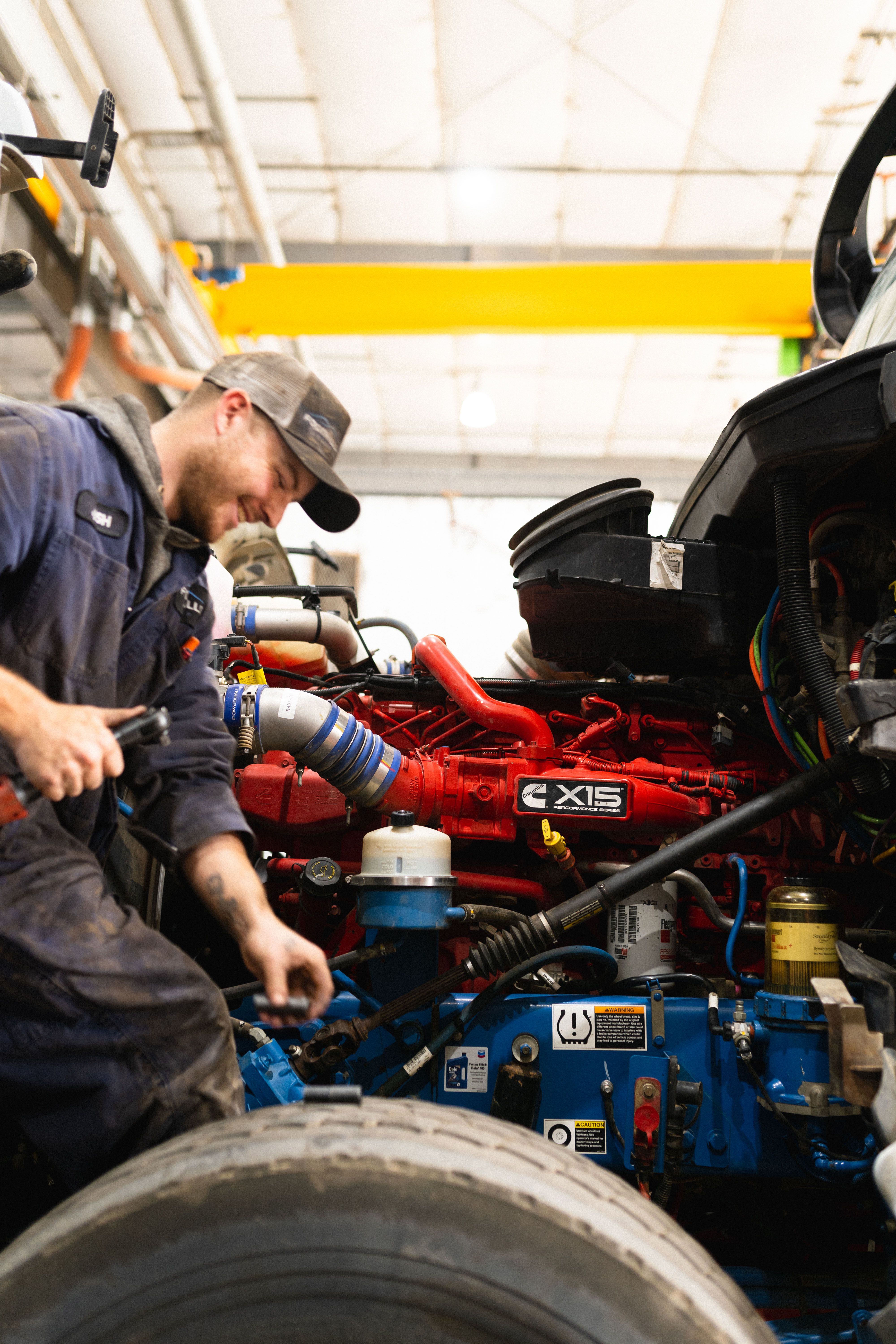Across North America, independent and mid-sized heavy-duty shops are fighting the same battle:a chronic shortage of skilled diesel technicians. The best techs are in high demand, and poaching is common. To stay competitive, shop owners need more than a "fair wage" - they needpay structures and incentives that reward performance, build loyalty, and keep bays full.
In the heavy-duty world, hourly pay is still king. Flat-rate systems (common in auto) aren't always a good cultural fit, and salaries are usually reserved for managers. But it's thelayering of bonuses, perks, and career development incentives on top of base pay that separates thriving shops from those constantly hiring.
This guide breaks downreal compensation models, incentive systems, and perks used by successful diesel shops - plus howShopView's SaaS platform helps track and scale them seamlessly.
1. Pay Structures That Work in Heavy-Duty Shops
Hourly Pay: The Industry Standard
Most heavy-duty technicians are paid hourly, and for good reason. It's predictable, fair, and comes with overtime. Hourly wages give techs theincome stability they prefer, allowing them to budget reliably.
- Predictable paychecks - important for family budgeting
- Overtime eligibility (usually 1.5× after 40 hours)
- Less pressure to rush jobs, allowing time for training, mentoring, and quality checks
Downsides: In slower periods, hourly techs may see smaller paychecks. From an owner's perspective, it can also feel like less control over throughput compared to pay-for-performance models.
Flat-Rate (Book Time): Rewarding Speed, With Caveats
Flat-rate pay assigns a fixed number of hours to each job. If a job is booked for 8 hours and a seasoned tech finishes in 4, they still get paid for 8 - potentiallydoubling their effective hourly rate.
This systemrewards efficiency, but heavy-duty shops rarely use pure flat-rate models because:
- Income can be unpredictable, especially with parts delays or complex diagnostics
- Rushed work risks quality issues - techs may cut corners to chase hours
- It can demotivate newer techs, who naturally take longer
Salaries: Rare, Except for Supervisors
Fixed salaries are uncommon for wrench-turners. They're typically reserved forshop foremen, trainers, or managers. Salaried techs trade overtime for consistent checks - a better fit for leadership roles than for line techs.
Hybrid Models: The Best of Both Worlds
Many modern shops nowblend hourly pay with bonuses tied to productivity or quality. A base hourly wage ensures stability, while weekly or monthly incentives push performance. For example:
- Base hourly + weekly productivity bonuses for exceeding billable hour targets
- Monthly profit-sharing based on shop net profits
- Skill-based raises for certifications or training milestones
This hybrid model fits the heavy-duty environment best. It motivates performance without forcing techs into unpredictable flat-rate structures they often dislike.
2. Performance Bonuses & Incentive Systems
Weekly Productivity Bonuses
Immediate, transparent rewards work. Setting aweekly billable hour baseline (e.g., 40 hours) and rewarding each hour above it with an extra $5-$10 creates motivation.
You can also tie in punctuality or certifications:
- $1 bonus for showing up early every day
- $2 per ASE/OEM certification held
Weekly bonusesgive techs direct control over their paychecks and create friendly competition - exactly the kind of "scoreboard" culture top performers love.
Monthly or Quarterly Profit-Sharing
Some shopsshare a percentage of net profit among staff monthly or quarterly. This aligns everyone with the shop's bottom line - if revenue goes up and costs go down,everyone benefits.
This team-based model boostscooperation between techs, parts, and service writers, since everyone has skin in the game.
Quality Bonuses & Comeback Controls
Productivity is useless if quality suffers. Smart shops tiebonus eligibility to quality metrics, such as:
- Zero comebacks within 30 days
- Passing random quality inspections
- Positive customer feedback scores
Measure only what techs can control andnever compromise quality for speed.
Other Common Bonus Ideas
- Sign-on and Retention Bonuses: $1,000-$10,000 spread over the first year is becoming standard to win talent in tight labor markets.
- Skill/Certification Bonuses: Adding $0.50-$1.00/hour for each ASE or OEM cert passed.
- Gamification & Point Systems: Some shops give "points" for clean inspections, upsells, or perfect clock-ins, redeemable for tools, gift cards, or days off.
- Team Incentives: Group bonuses for collective bay-hour goals encourage peer support and keep morale high.
Pitfall: Complexity kills incentive plans. Keep formulas simple, transparent, and consistent. Never promise bonuses you can't deliver - it destroys trust fast.
ShopView Tip: Use ShopView'sdigital time clocks and reporting to automatically track billable hours, comebacks, and quality metrics. Bonus reports can be generated weekly without messy spreadsheets or disputes.
3. Perks and Non-Cash Incentives That Techs Actually Value
Tool & Equipment Allowances
Diesel techs invest thousands in tools. Tool stipends are "a great perk" that saves techs big money. Many shops offer:
- Annual tool stipends or reimbursements
- Company-provided specialty tools
- Replacement programs for worn-out essentials
This isn't just financial - it shows respect for a tech's craft and speeds up jobs.
Boots, Uniforms & Safety Gear
A pair of work boots takes a beating under 20,000 lbs. Offering a$100 boot stipend every six months or providing uniforms shows care for your crew and removes small friction points that add up.
Company Vehicles for Mobile Techs
For mobile or roadside service techs, acompany truck is a huge perk. It saves them fuel, personal vehicle wear, and elevates their professional image.
Paid Training & Certifications
Modern trucks are rolling computers. Paid ASE or OEM training, with paid time off to attend, signals long-term investment in your team. Training is "always in demand" - and techs who certify earn more.
Tying raises to certifications makes skill-building pay off immediately.
PTO & Flexibility
Good scheduling beats burnout. Offeringweekends off, flex Fridays, or reasonable PTO can boost retention more than you'd think. Culture matters.
Recognition Programs
Non-cash recognition goes further than many owners realize:
- Tech of the Month awards
- "Wall of Honor" photo boards
- Branded gear or small bonuses for standout contributions
High performers like to be seen. Recognition reinforces that excellence matters.
4. Why This All Pays Off: ROI in Real Numbers
These strategies aren't just about being "nice." They delivermeasurable ROI:
- $50K saved per year by retaining one extra tech
- 0.5-1 extra billable hour per tech, per day from engagement and digital tools - tens of thousands annually
- Shops using ShopView report20-30% revenue growth within 90 days of digitizing scheduling, parts, and reporting
- One ShopView customer doubled monthly revenue from$45K to $90K per bay by eliminating paper chaos and incentivizing performance
In short:paying smarter + managing smarter = more profit.
5. Leveraging ShopView to Track and Scale Incentives
You can't manage what you can't measure. That's whereShopView comes in. This platform isbuilt specifically for heavy-duty repair shops, not generic auto garages. It integrates telematics, DVIR/DOT compliance, scheduling, parts, and reporting in one place.
Here's how ShopView amplifies compensation strategies:
Automated Time & Performance Tracking
ShopView'sdigital work orders and time clocks automatically record each tech's hours and completed jobs. KPI dashboards keep score daily - no more arguing over handwritten logs.
Smart Scheduling & Load Balancing
Telematics integration means if a truck throws a fault code, ShopView auto-generates a work order and assigns it to the right bay. That keeps workloads balanced and maximizes billable hours without burning people out.
Parts Forecasting & First-Time Fixes
ShopView syncs PM schedules and fault codes topredict parts usage, so everything is ready when the tech starts the job. This reduces "waiting on parts" time - a common killer of productivity-based pay systems.
DOT/DVIR/IFTA Compliance Integration
Compliance tasks are automatically turned into service items. Techs don't have to chase paper, and you don't miss revenue opportunities or risk fines.
Multi-Shop Visibility
For multi-location operators, centralized dashboards let youcompare performance across sites, track incentives consistently, and spot issues early.
Cloud Advantage
As a SaaS platform, ShopView updates automatically with new features (e.g., updated IFTA rules, new diagnostic integrations).No costly upgrades. No server headaches. And adoption is accelerating - SaaS use in heavy-duty repair is forecast to rise from ~20% today to50-60% by 2030.
Conclusion: Pay Smart. Motivate Right. Manage Digitally.
In today's labor market,compensation and incentives aren't just HR policies - they're strategic weapons. By blendinghourly stability, smart bonuses, meaningful perks, and digital tracking, you can attract, retain, and motivate the best heavy-duty technicians on the market.
Key Takeaways:
- Use hourly + bonuses for a balanced, motivating pay structure
- Tie incentives to controllable metrics - billable hours, quality, teamwork
- Offer perks like tool stipends, training, PTO, and recognition
- Track everything digitally through ShopView to scale with confidence
- Expect real ROI - often within 60-90 days
Book a Free Demo of ShopView to see how you can modernize pay systems, motivate your crew, andcapture every billable hour in your shop.
Ready to transform your shop?
We've been in the heavy-duty truck repair business for 20+ years, so we know what slows shops down. That's why we built ShopView—to eliminate the bottlenecks.



